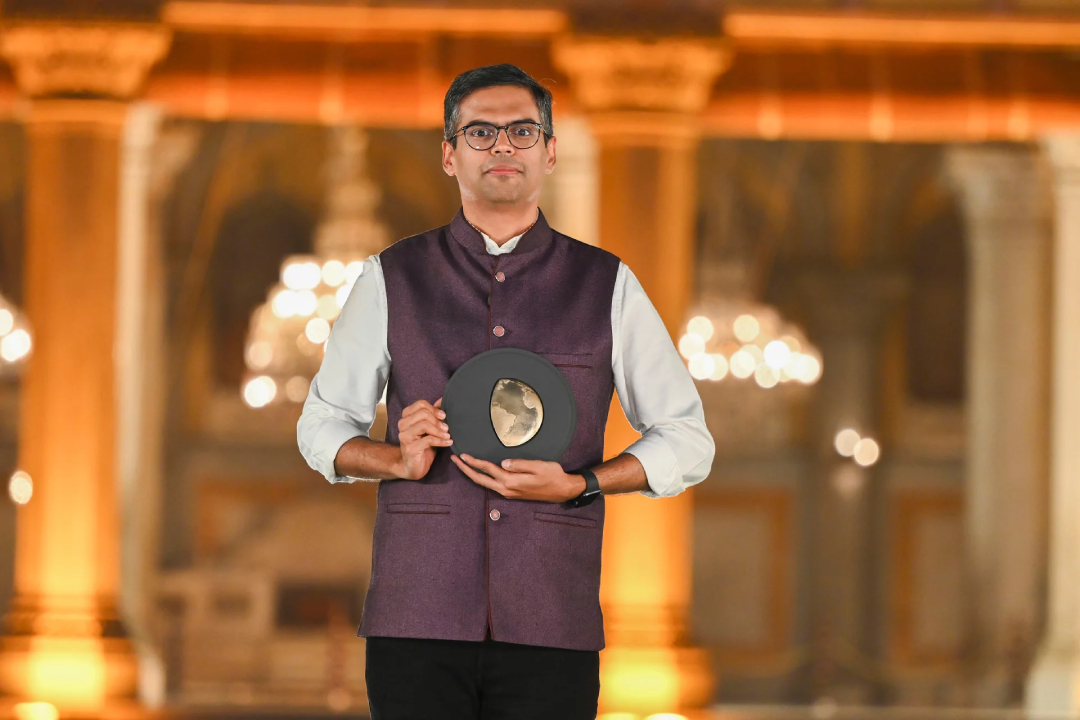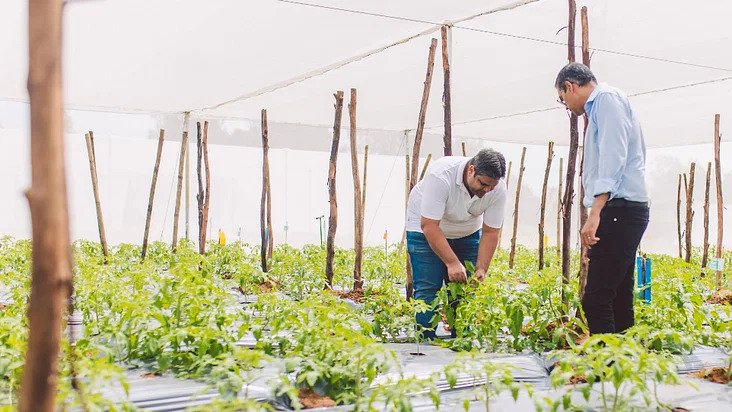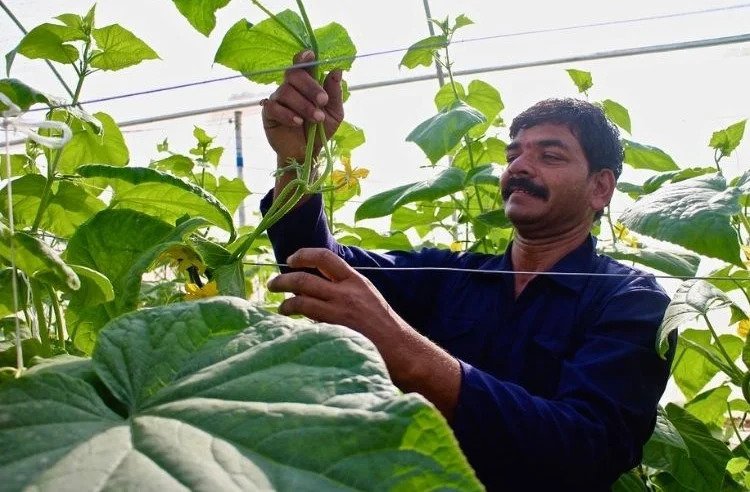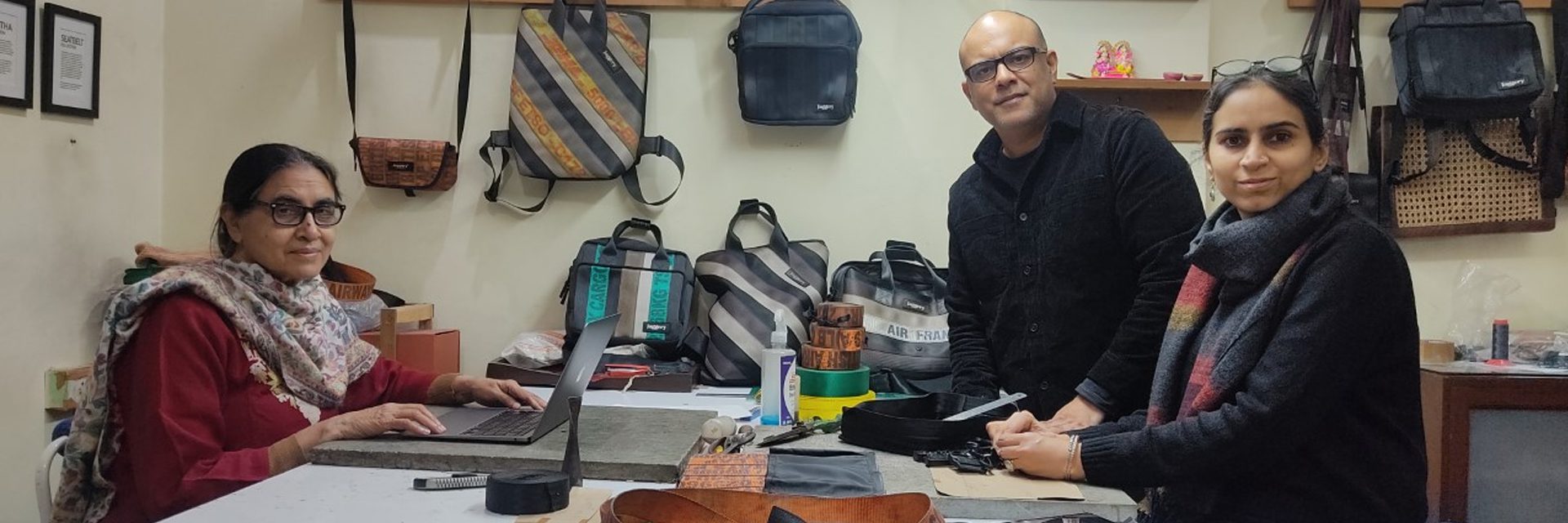(September 11, 2023) As a teenager, Sathya Raghu Mokkapati saw a desperate and famished farmer eating mud to satiate his hunger in his village in Andhra Pradesh. That moment left an indelible impact on Sathya, who decided to do something for the farmers. 13 years later, he co-founded Kheyti in 2015 to bolster and amplify farmers’ income via their inventive ‘greenhouse-in-a-box’ approach, which went on to win the Prince William’s Earthshot Prize in 2022. Winning a £1 million prize was nothing short of a watershed moment for Kheyti as the spotlight was suddenly turned on the Indian startup, that designed the “greenhouse-in-a-box” for smallhold farmers. With India home to 100 million small-hold farmers and one of the most climate-affected nations in the world, the startup helps reduce costs, increase yields, and protect livelihoods in a region on the frontlines of climate change. Kheyti also trains and supports farmers to ensure their greenhouse is as effective as possible.

Kheyti’s Kaushik Kappagantulu with the Earthshot Prize 2022
“We are honoured to be recognised by The Earthshot Prize this year. The world depends on its small-hold farmers and yet their lives are amongst the hardest on earth. Our Greenhouse-in-a-Box is empowering farmers in India today. The steps we have already taken at Kheyti are now building to change farmers’ lives at scale,” said Kaushik Kappagantulu, co-founder, Kheyti.
Moreover, Prince William surprised South Londoners this July when he served plant-based ‘Earthshot burgers’, whose ingredients were from a greenhouse in India by Kheyti.
The beginning
Before Kheyti, Sathya and his long-time friend Ayush Sharma, started Cosmos Green, a startup in the agri space. It was during the same time that the inception of Kheyti took root when the two embarked on a journey across hundreds of Indian villages in 2015 as participants in the Acumen Fellowship, a leadership development program. Their mission was to gain insights into the challenges confronting small-scale farmers, including issues like insufficient rainfall, untimely rains, erratic heat patterns, and the threats posed by pests exacerbated by high temperatures.
During those months, the duo along with co-founders Kaushik K and Saumya came across many farmers who expressed their desire to increase their monthly earnings. They found their solution in the greenhouse as farmers could cultivate premium crops like cucumbers, tomatoes, bell peppers, and even flowers throughout the entire year, regardless of the dry season’s drought. This led to the birth of Kheyti’s ‘greenhouse-in-a-box’, an economical and adaptable greenhouse solution that consumes only 10 percent of the water compared to conventional greenhouses while yielding sevenfold more produce. Furthermore, it ensures a consistent and reliable income for farmers. This resilient greenhouse effectively mitigates heat, keeps pests at bay, and conserves water, thereby simplifying the process for farmers to boost their income.

Greenhouse-in-a-box
The impact
Initially made out of bamboo to keep the costs to a bare minimum, the greenhouse structure was blown away in the first storm. They then settled for steel structure by taking the help of local banks to finance farmers for its $4,200 cost, while the startup provided them with seeds, fertilizer, and knowledge to help them plant the new crops. Over the years, they continuously worked to bring down the cost of a greenhouse to $1200, which is affordable by most farmers without financing. “No other company in agriculture has been able to deliver so much impact attributable to one product,” co-founder Saumya said in an interview.
Traditionally used for growing exotic vegetables like broccoli, the startup has made the greenhouse effective for growing almost all Indian vegetables, including leafy vegetables and common ones like potatoes. Starting in 2015, Khyeti installed their first greenhouse in 2017 in Siddipet in Telangana, and have till now benefitted over 1000 farmers in six states.
30
By reducing the traditional one-acre greenhouse size to one-tenth, the startup has successfully lowered the cost from ₹30 lakh to just ₹60,000, ensuring accessibility and affordability. “Agricultural incomes are dependent on climate risk. Kheyti provides a model of farming which is economically viable and environmentally friendly too,” Sathya said in an interview.
“Today, 1,000 farms have a Kheyti greenhouse, but this is just the start. By 2027, Kheyti wants 50,000 farmers to have a Greenhouse-in-a-Box.”




